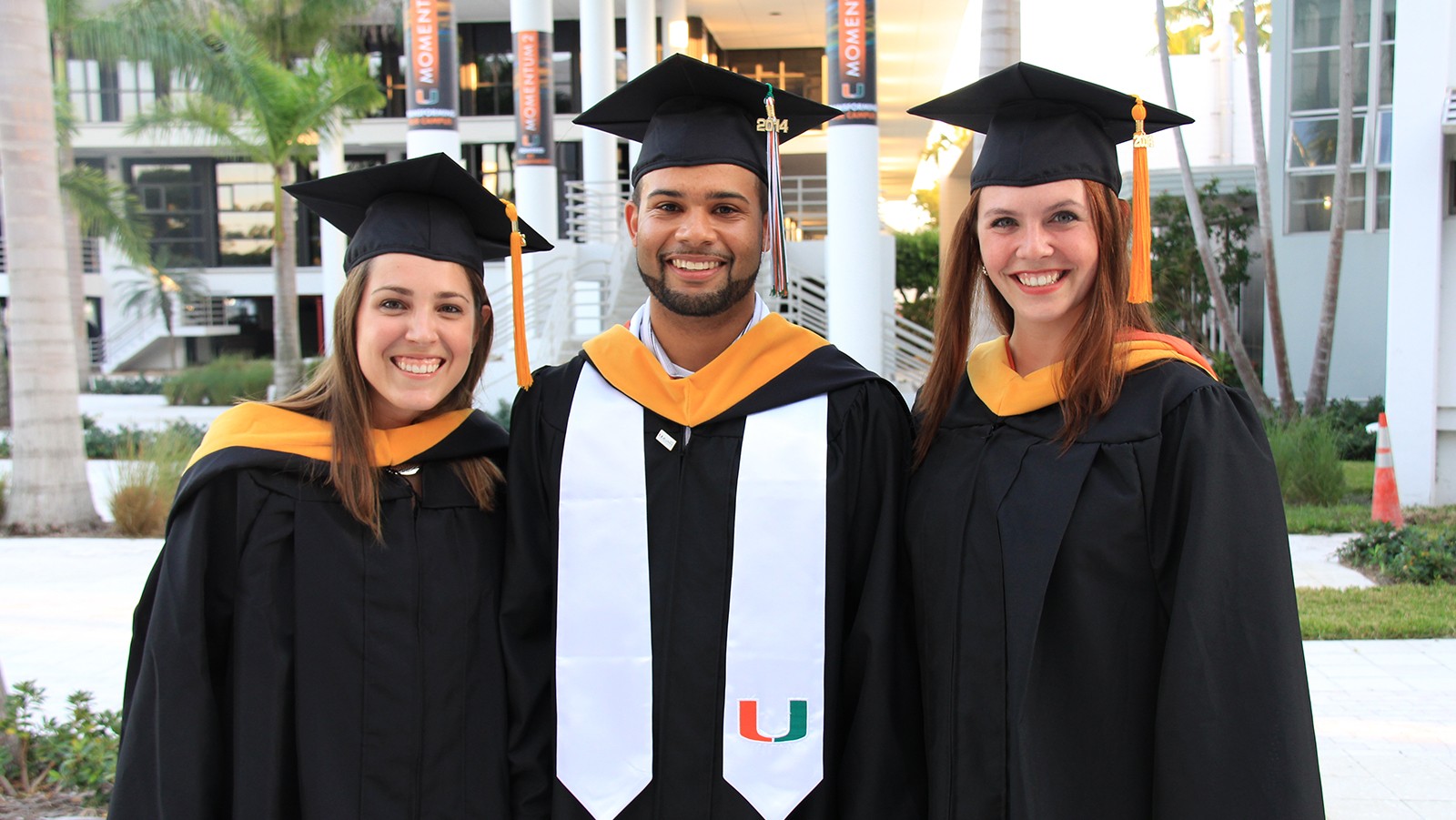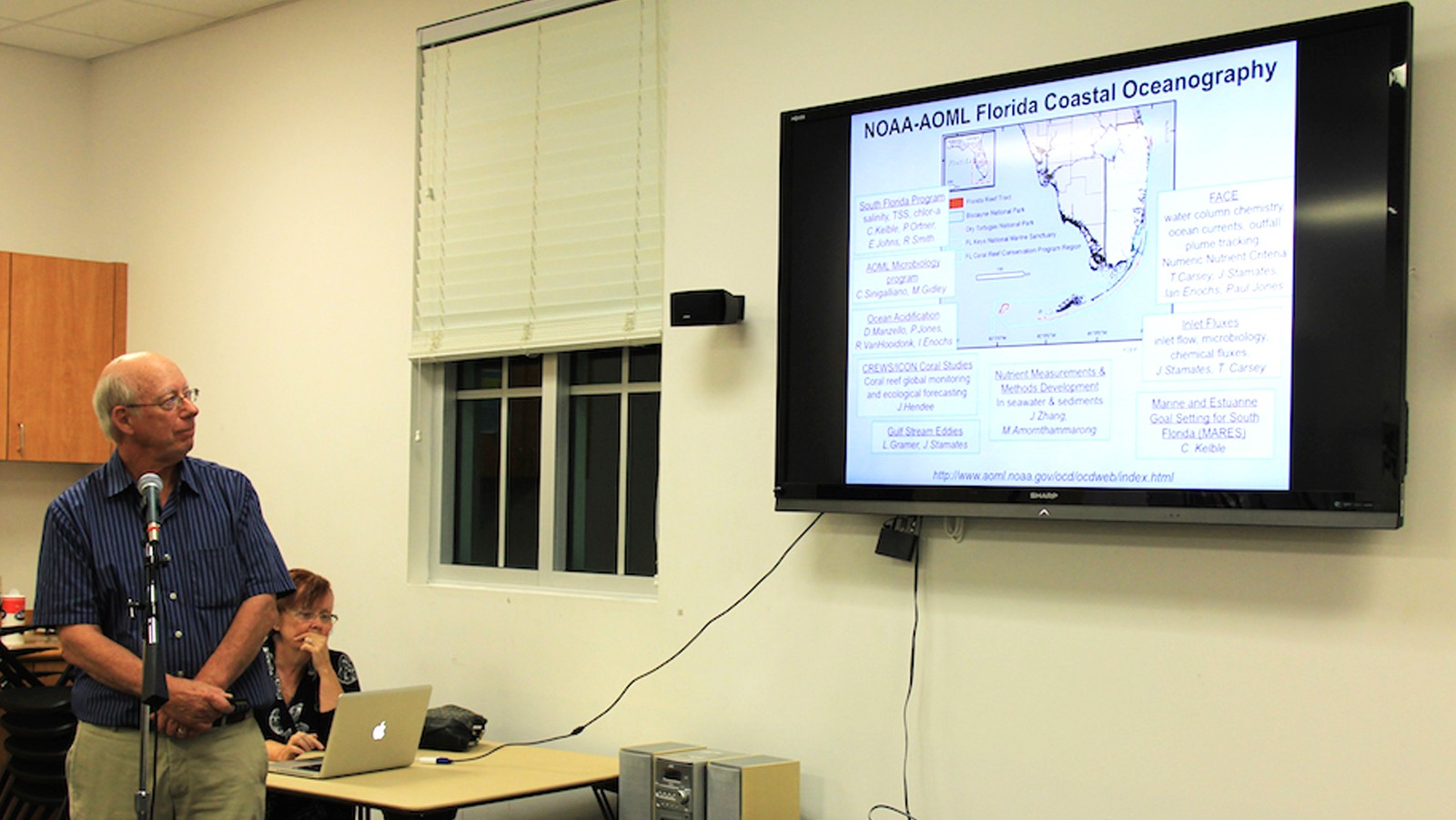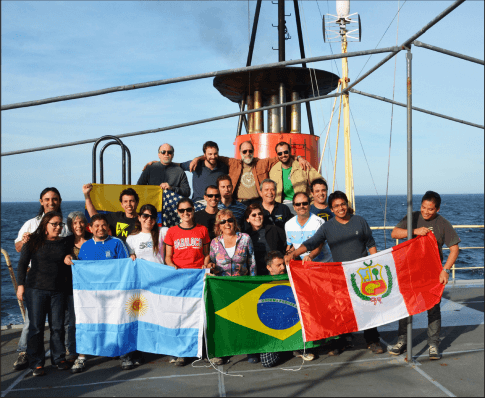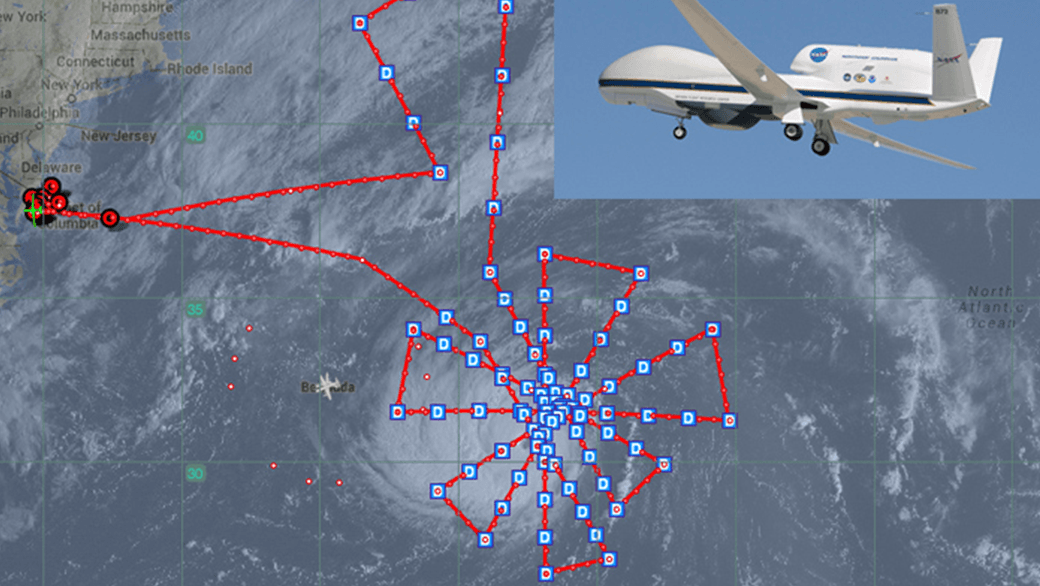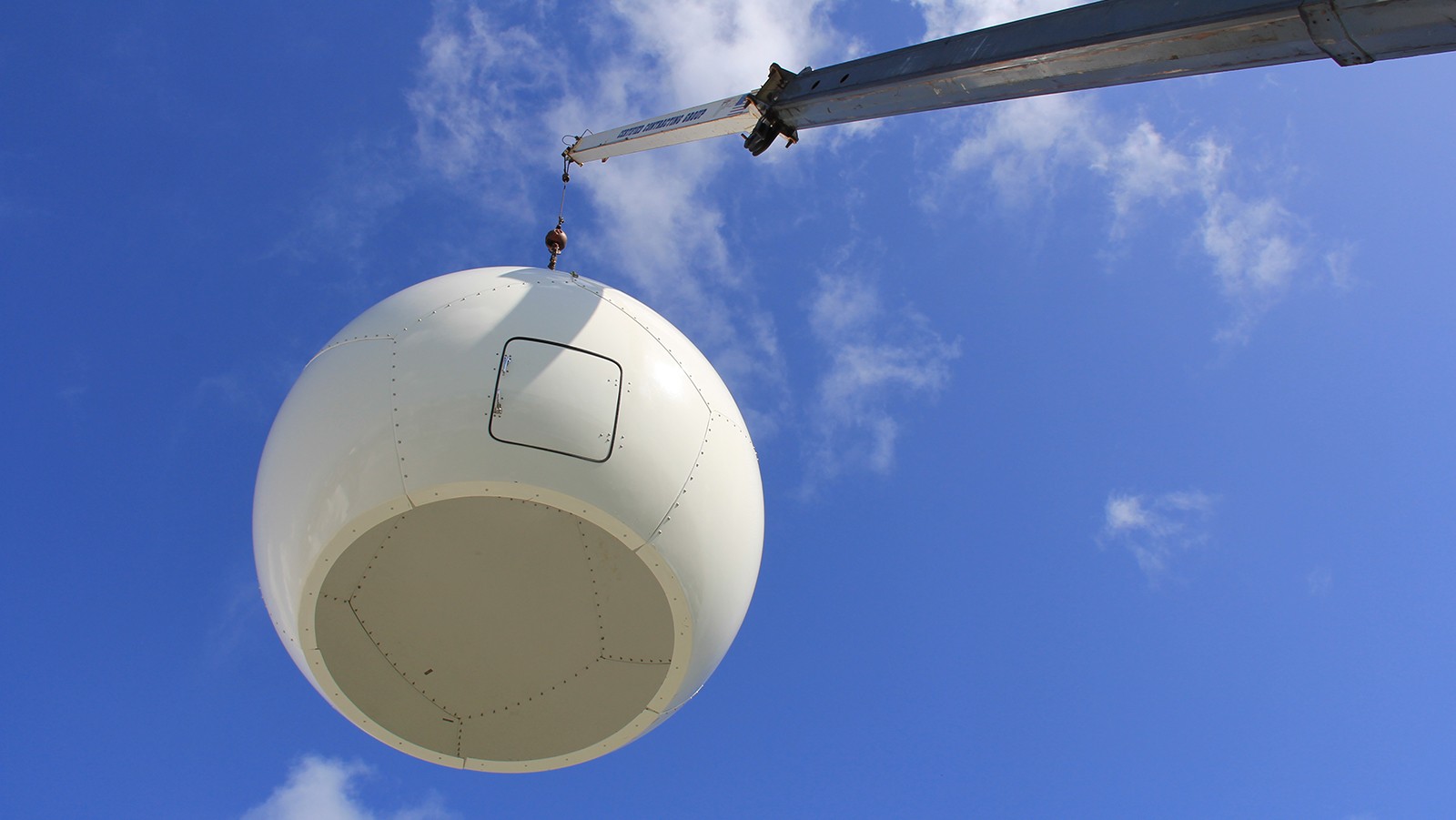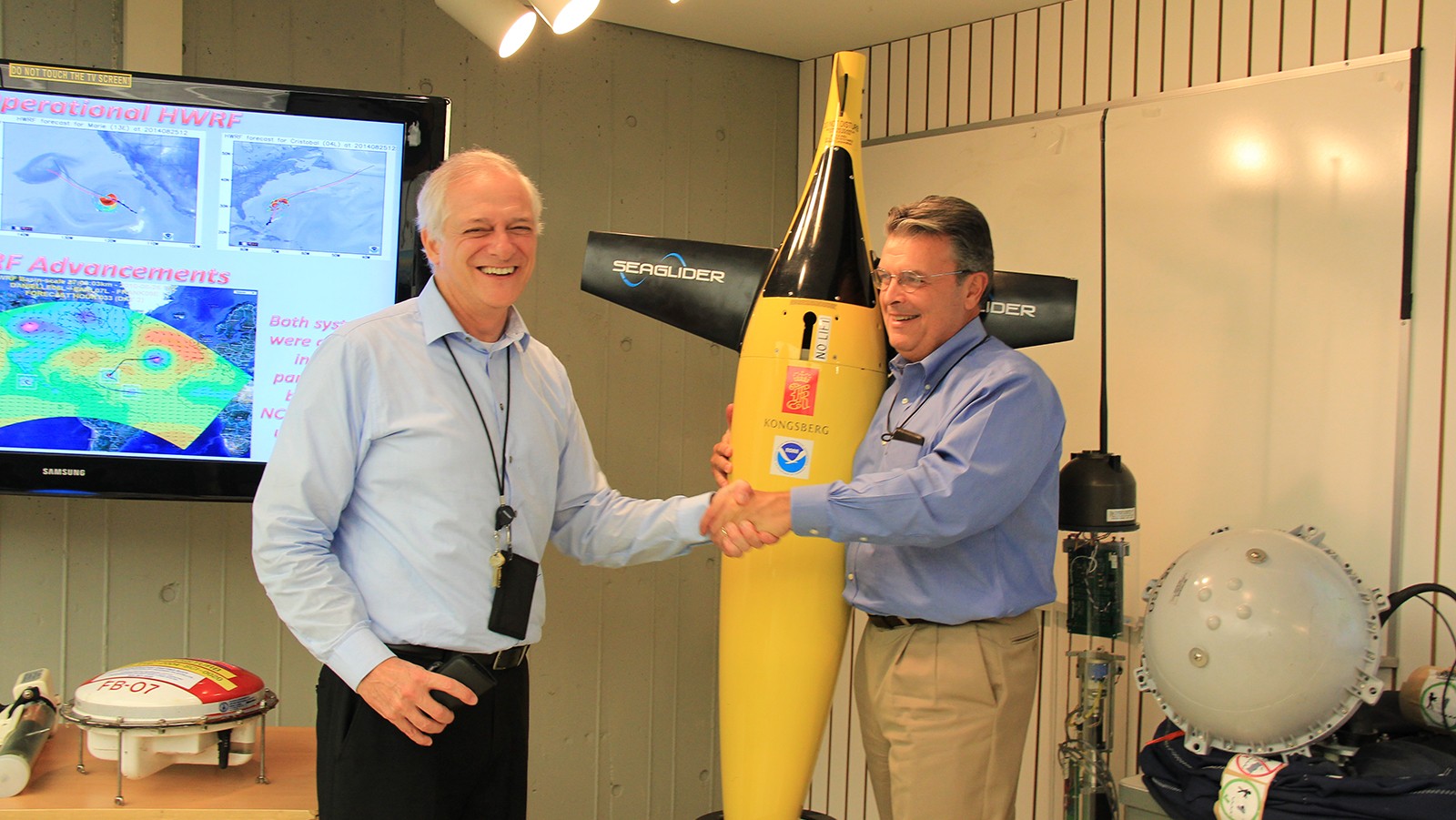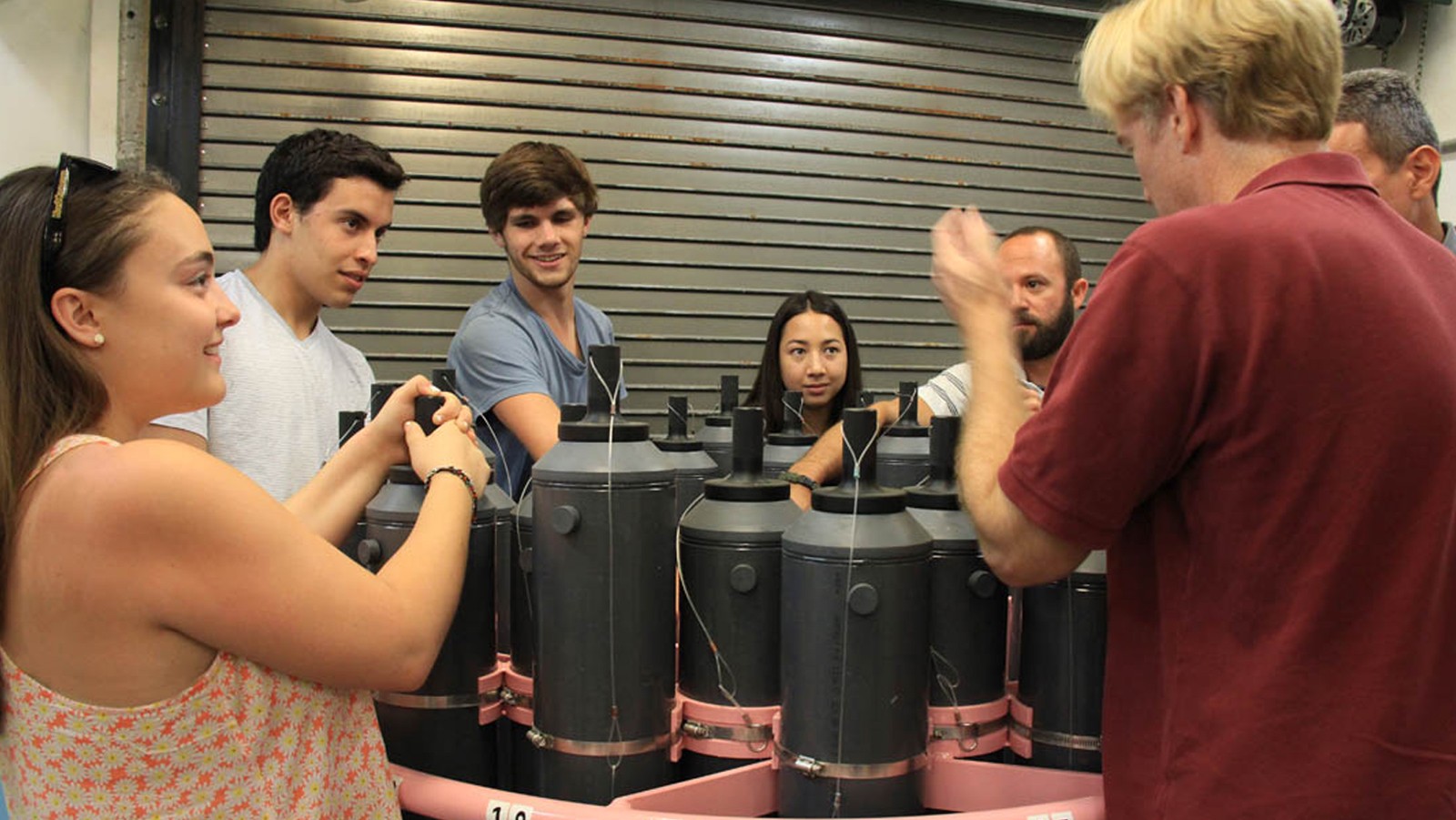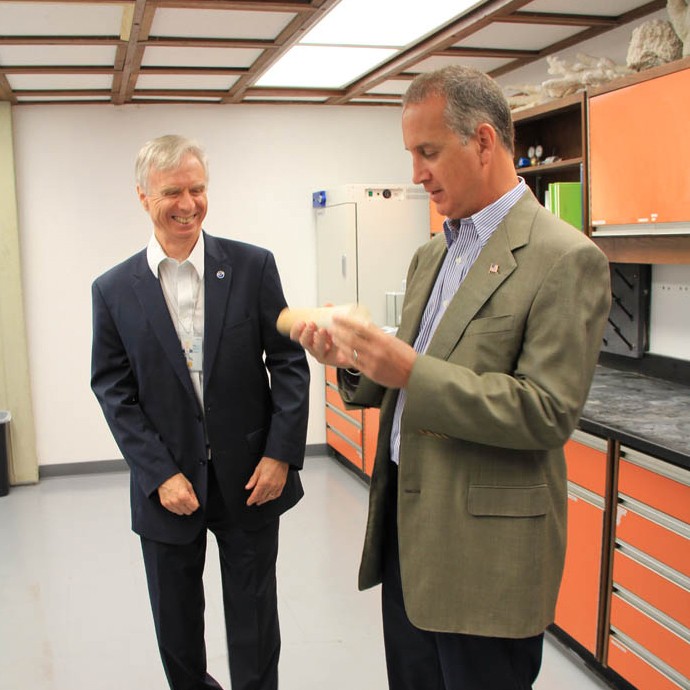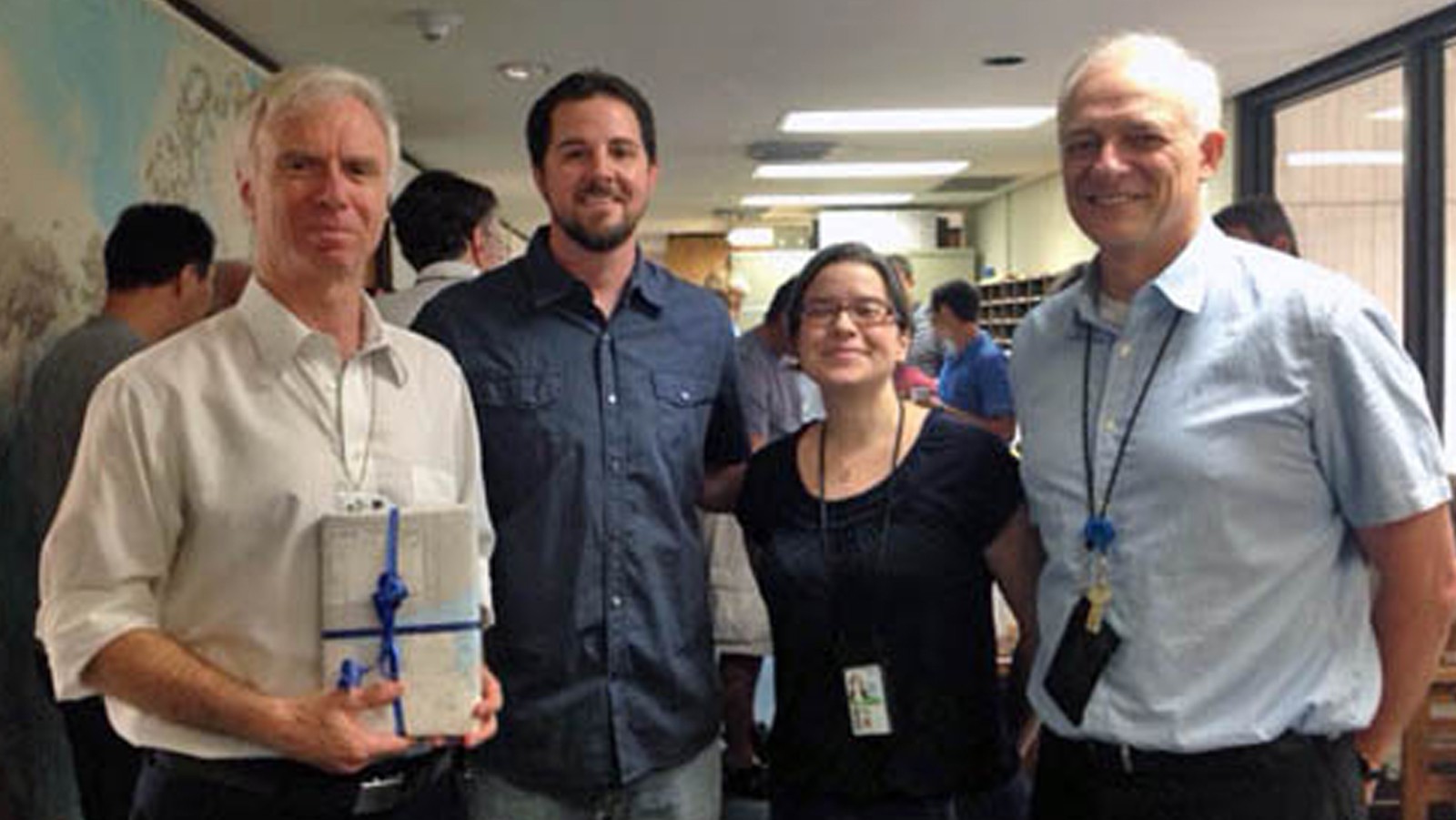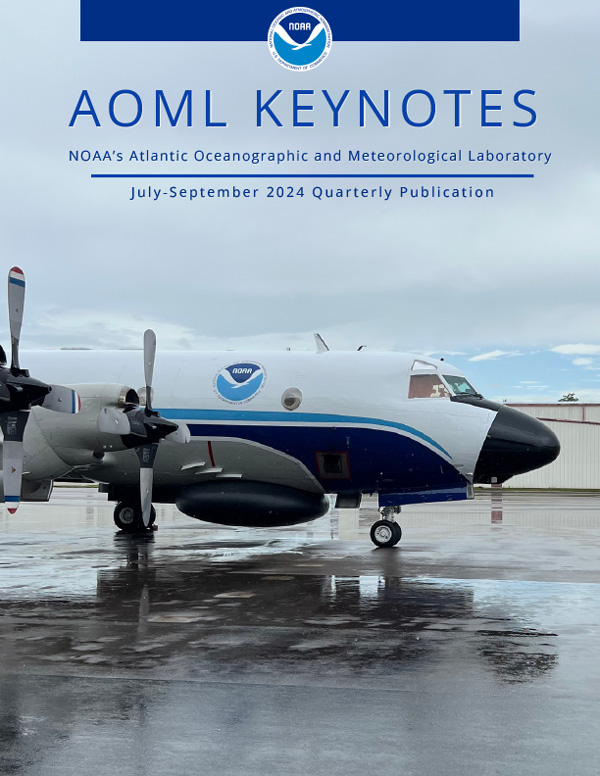Congratulations to UM’s RSMAS Graduates from NOAA
Shannon Jones, Austin Flinn, and Chloe Fleming celebrated their graduation from the University of Miami’s Rosenstiel School of Marine and Atmospheric Science. All three worked with NOAA in south Florida as part of their graduate research. Austin Flinn also received funding for his degree from NOAA’s Environmental Partnership Program (EPP). Congratulations to all graduates!
